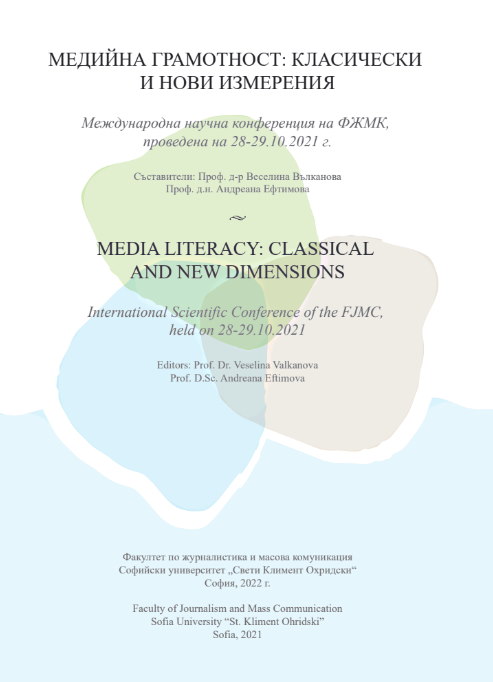Rumors and pandemic: Rethinking old and new theories of rumors and disinformation
Rumors and pandemic: Rethinking old and new theories of rumors and disinformation
Author(s): Diana Petkova
Subject(s): Social Sciences, Media studies, Communication studies
Published by: Факултет по журналистика и масова комуникация, Софийски университет „Св. Кл. Охридски”
Keywords: rumors; conspiracy theories; pandemic; vaccines
Summary/Abstract: This paper studies the social psychological phenomenon of rumors and outlines its mechanisms and transformations in conditions of a global pandemic. For this reason, the method of content analysis has been used to study the posts in a close group on Facebook. The Internet and social networks nowadays provide the possibility for everyone to equally participate in the process of communication and thus become a fertile ground for spreading rumors and conspiracy theories. In such a way, rumor communities have been created. Rumors and conspiracy theories arise in moments when there is an emergent need for understanding. Having clear, even though wrong, explanations for events and phenomena becomes more important for individuals and societies than sustaining uncertainty in looking for the truth. Based on the analysis it is concluded that several factors can contribute to sustaining misconceptions. The first one is the need to reduce anxiety. Second, believing in false facts may also be due to low levels of education and the lack of access to reliable information. Third, the cultural memories of the past may lay the foundations for present-day perceptions. Fourth, existing mental schemata may contribute people to being predisposed to misconceptions.
Book: Медийна грамотност: Класически и нови измерения
- Page Range: 93-100
- Page Count: 8
- Publication Year: 2022
- Language: English
- Content File-PDF

